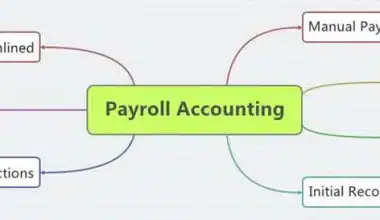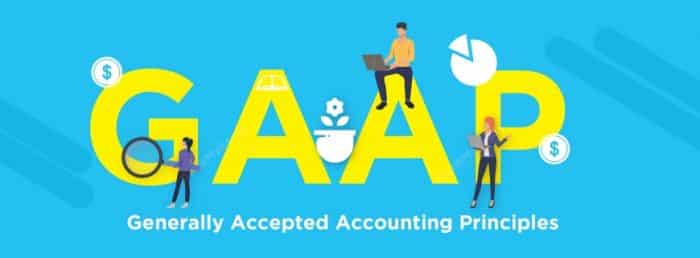As the job market continues to evolve, so do the skill sets employers seek in their employees. In accounting, certain certifications can make you a more attractive candidate and help you advance your career. However, many accounting certifications are available, and you can find it difficult to know which is best for you. To help you, we’ve compiled a list of the best free and paid online accounting certifications and finance programs you need in 2023. So, read on!
15 Best Accounting Certifications Programs You May Need In 2023
If you want the best free and paid online accounting certifications and finance programs in the accounting field? Then, look no further! Below are the 15 best accounting certifications programs you may need in 2023:
#1. CPA – Certified Public Accountant
Certified Public Accountant (CPA) is a highly respected credential recognized across the United States. To earn the CPA designation, candidates must pass a rigorous exam and have a certain amount of experience working in the accounting field.
#2. CIA – Certified Internal Auditor
Certified Internal Auditor (CIA) is another well-respected credential offered by the Institute of Internal Auditors. To earn the CIA designation, candidates must pass an exam and have a certain amount of experience working in the internal audit field.
#3. CMA – Certified Management Accountant
You can enroll for Certified Management Accountant (CMA) from the Institute of Management Accountants. To earn the CMA designation, candidates must pass an exam and have a certain amount of experience working in the management accounting field.
#4. CFM – Certified in Financial Management
Institute of Management Accountants also offers Certified in Financial Management (CFM). However, to earn the CFM designation, candidates must pass an exam and have a certain amount of experience working in the financial management field.
#5. CFA – Chartered Financial Analyst
The Chartered Financial Analyst (CFA) designation is among the most popular and well-respected finance certifications. The program consists of three levels of exams, which test your knowledge of investment analysis and portfolio management. Meanwhile, employers highly accept CFA designation in the financial services industry, and it can lead to senior-level positions and high salaries.
#6. CFP – Certified Financial Planner
The Certified Financial Planner (CFP) designation is another popular finance certification. The CFP designation focuses on financial planning and covers retirement, insurance, estate, and tax planning.
Additionally, companies widely recognized CFP certification. This means it can lead to job opportunities in financial planning and financial services firms.
#7. ChFC – Chartered Financial Consultant
The Chartered Financial Consultant (CFC) designation is a less well-known but still respected finance certification. It focuses on financial consulting and covers topics on financial analysis, business valuation, and mergers and acquisitions.
Furthermore, firms recognize CFC in the financial consulting industry, and can pathway for job opportunities in financial consulting firms and investment banks.
#8. CGMA – Chartered Global Management Accountant
The Chartered Global Management Accountant (CGMA) is also one of the best accounting certifications and finance programs. The designation is a relatively new finance certification, but most companies accept it.
#9. CRMA – Certified Risk Management Analyst
The Certified Risk Management Analyst program is to help individuals assess and manage risk within their organizations. This program is ideal for those working in the financial industry, as it can help them identify and mitigate risks that could lead to financial losses.
#10. CISA – Certified Information Systems Auditor
The Certified Information Systems Auditor program is perfect for those who want to pursue a career in auditing. This program provides individuals with the skills and knowledge necessary to audit information systems and ensure they align with industry standards.
#11. CFE – Certified Fraud Examiner
The Certified Fraud Examiner program is ideal for those who want to pursue a career in fraud investigation. This program also provides individuals with the skills and knowledge necessary to investigate and prosecute fraud cases.
#12. FSAC – Financial Services Audit Certificate
The Financial Services Audit Certificate program is perfect for those who want to pursue a career in auditing financial services organizations. This program offers people the skills and knowledge necessary to audit financial services organizations and ensure they go with industry standards.
#13. EA – Enrolled Agent (EA)
Enrolled Agent (EA), as one of the best online accounting certifications and finance programs, provides excellent preparation for a career in accounting or finance. The program covers many topics, including financial accounting, taxation, auditing, and financial management.
#14. CAIA – Chartered Alternative Investment Analyst
The Chartered Alternative Investment Analyst (CAIA) designation is also one of the most popular online accounting certifications and finance programs. It is globally recognized and is one of the most highly respected credentials in the financial industry.
In addition, the CAIA program is for financial professionals who want to specialize in alternative investments, such as hedge funds, private equity, and real estate.
#15. CFF – Certified in Financial Forensics
This online accounting and finance program provides students with the skills and knowledge necessary to detect and prevent fraud. The program covers financial statement analysis, fraud investigation, and forensic accounting. Hence, students who complete the program will enter the workforce as fraud investigators or forensic accountants.
NOTE: These are just a few of the many accounting certifications available. While not all of them may be necessary, these are some of the most popular and well-recognized programs. Additionally, not all these online accounting certifications and finance programs are free. So, research and know which ones fit your pocket and make the most sense for your career aspirations.
What Certifications Should Accountants Have?
There are a few different certifications that accountants can have, but the most common and important one is the Certified Public Accountant, or CPA, designation. To be a CPA, accountants must have a bachelor’s degree in accounting and pass a rigorous exam.
Other certifications include the Certified Internal Auditor, Certified Management Accountant, and Certified Fraud Examiner.
While these other certifications are not as common as the CPA, they can help advance an accountant’s career. The CPA designation is the most important certification for an accountant to have. In addition, CPAs must have a bachelor’s degree in accounting and pass a rigorous exam.
Is CMA Better Than CPA?
It depends on your individual goals and career aspirations. However, Certified Management Accountant (CMA) is for those who want to work in management accounting. To earn the CMA, you must pass two exams and have two years of relevant work experience. The exams cover financial reporting, planning, performance, and control. The CMA designation can also lead to higher salaries and job satisfaction.
On the other hand, Certified Public Accountant (CPA)is the gold standard for public accounting and finance. To earn the CPA, you must pass all four parts of the Uniform CPA Examination. The exams cover auditing, business environment and concepts, financial accounting and reporting, and regulation. The CPA can also lead to higher salaries and job satisfaction.
Which Is Harder CMA or CPA?
There is no easy answer when deciding which credential, CMA or CPA, is harder. Both exams require a great deal of dedication and hard work to pass. However, most students find the CMA exam more challenging due to its broad scope of topics than the CPA exam.
Are Accounting Certificates Worth It?
Yes, an accounting certificate is worth it. An accounting certificate can be a great way to get your foot in the door of the accounting industry. Many employers prefer to hire candidates with a certificate or degree in accounting. And a certificate can show that you have the basic skills and knowledge necessary to be successful in an accounting role.
However, a certificate alone is not enough to guarantee success. You will also need to have strong analytical and problem-solving skills, as well as the ability to communicate effectively with clients and colleagues. If you don’t know which accounting certification is best for you, speak to a counselor or advisor at your college or university.
Is Accounting Worth It Without CPA?
While you may not earn as much as a CPA, you can still find success in the field. Many accounting positions do not require certification, and you can still advance your career without becoming a CPA. With the right experience and education, you can become a controller, chief financial officer, or even a partner in an accounting firm.
Can You Work At The Big 4 Without A CPA?
Yes, you can work at the Big 4 without a CPA. However, you will likely be limited to working in non-audit roles. The Big 4 are accounting firms that offer auditing, tax, and consulting services. The firms are KPMG, PwC, Deloitte, and Ernst & Young, the largest professional services networks in the world.
Many people aspire to work at one of these firms because of the prestige and opportunities for career growth. However, some people believe you can only work at the Big 4 if you are a certified public accountant (CPA). This is not the case. While CPAs may have an advantage when applying for jobs at the Big 4, many positions do not require this certification. The positions are administrative roles, marketing, and human resources.
What Is The Difference Between CPA And Bookkeeper?
A Certified Public Accountant (CPA) is a professional who has passed a rigorous exam and meets continuing education requirements. A CPA can provide a broad range of services, from tax preparation to auditing.
A bookkeeper, on the other hand, is responsible for keeping financial records organized and up to date. While bookkeepers may have some accounting knowledge, they are not licensed professionals.
What Is The Downside Of CPA?
There are a few potential downsides to becoming a Certified Public Accountant.
- Firstly, becoming a CPA can be long, with many exams and requirements. This can be off-putting for some people who are considering the role.
- Secondly, the role can be quite demanding, often with long hours and intense work. This can make it hard to maintain a healthy work-life balance.
- Thirdly, the job market for CPAs is not always stable, and there can be competition for positions.
- Finally, the pay depends on the location and company, and may not be as high as some other financial roles.
Final Thoughts
Accounting certifications serve two main purposes: to improve your accounting skills and to make you more marketable to potential employers. Meanwhile, the above free and paid online accounting certifications and finance programs are available, and the best one for you will depend on your career goals and experience level.






